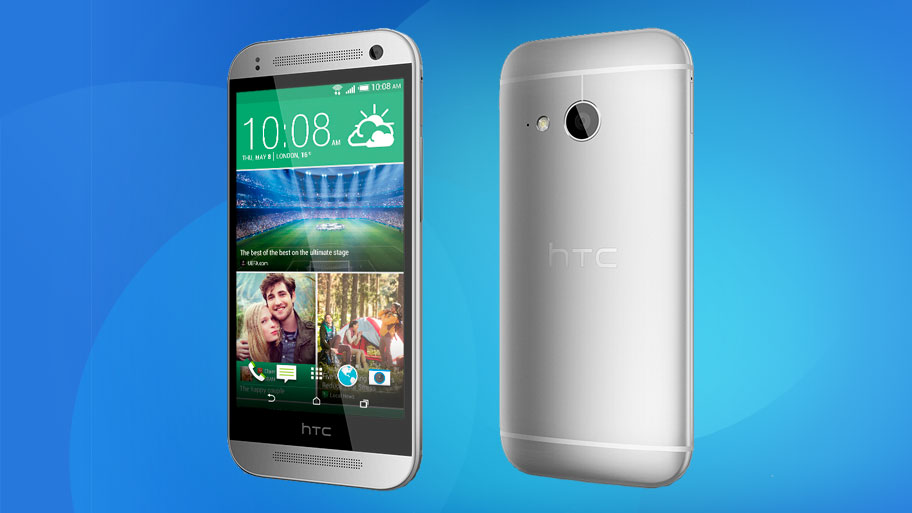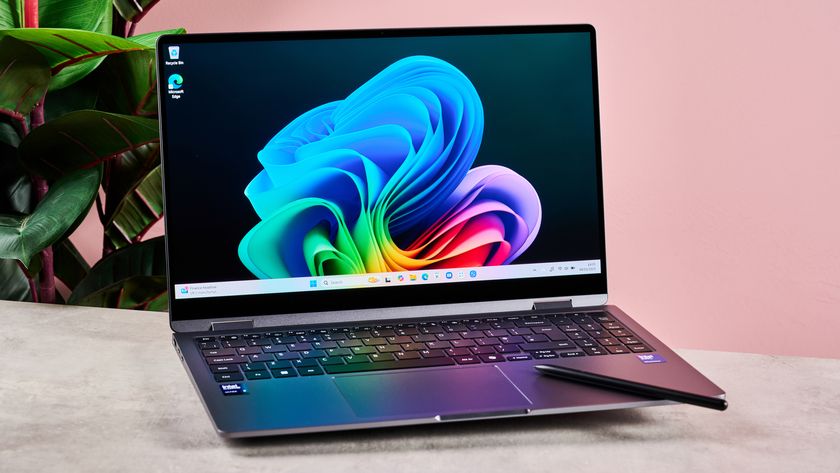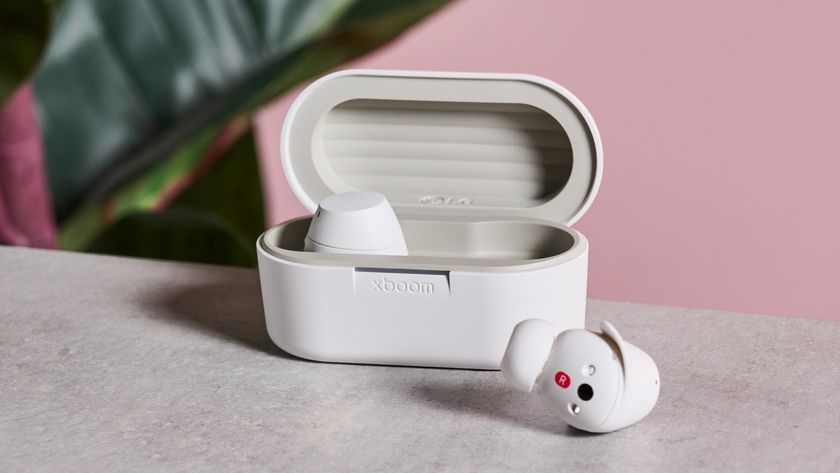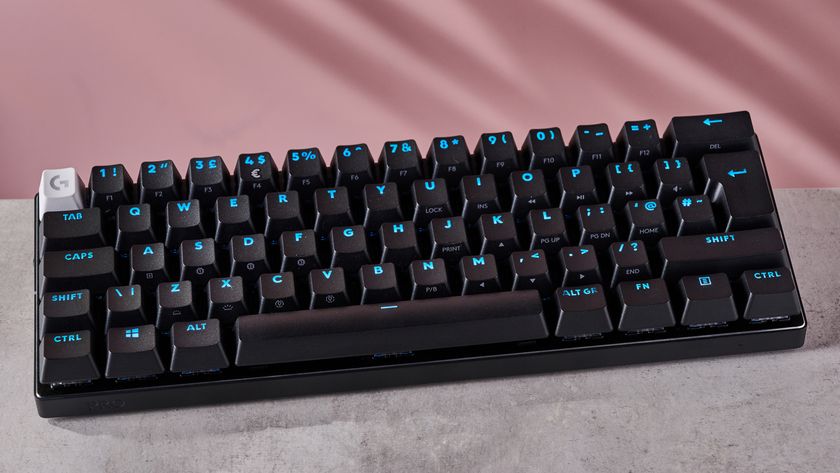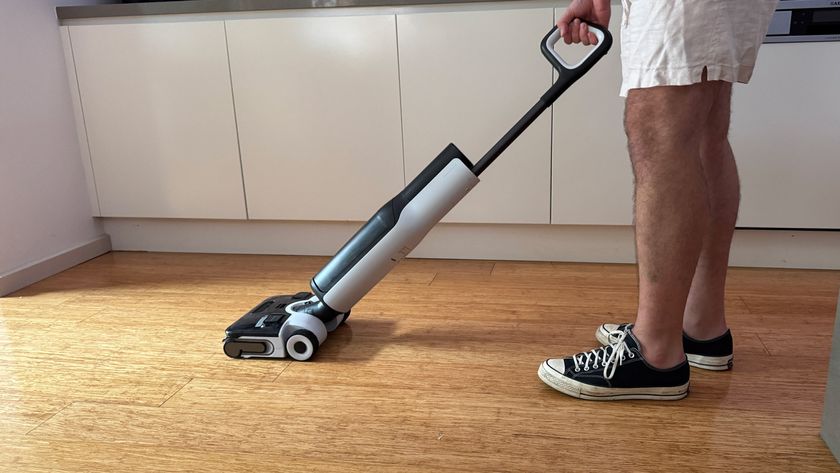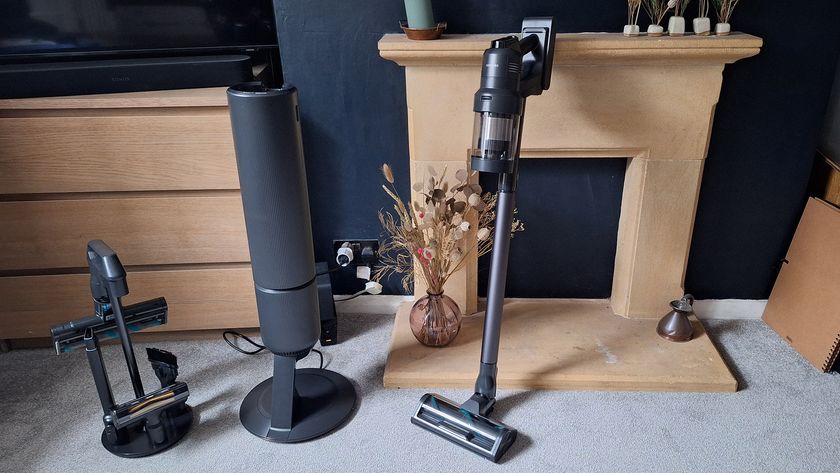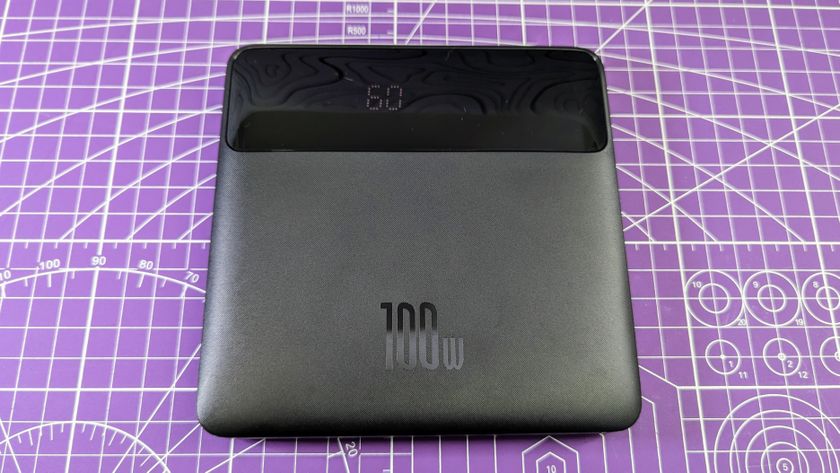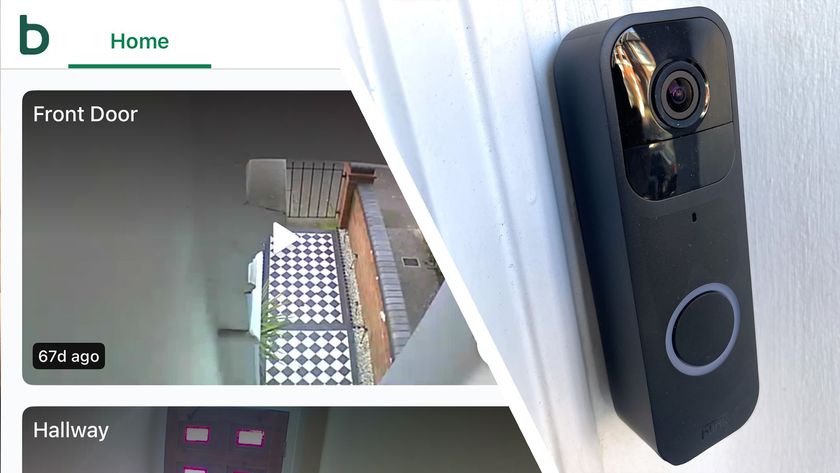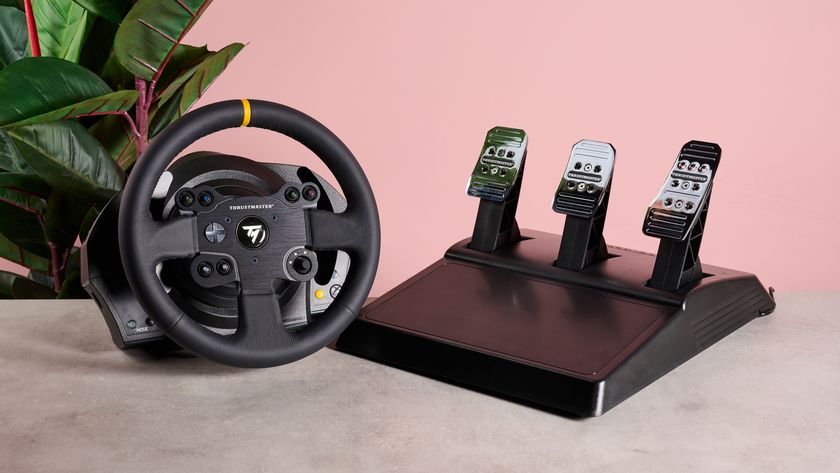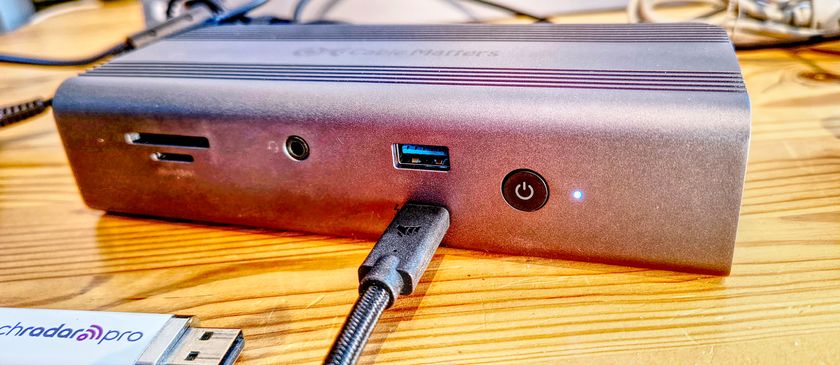TechRadar Verdict
If you want a premium Android smartphone which isn't massive the HTC One Mini 2 is a worthy contender, but it's not without its flaws.
Pros
- +
Premium design
- +
Strong camera
- +
Boomsound
Cons
- -
Chunky build
- -
Battery still not great
- -
Jarring performance
Why you can trust TechRadar
Here we are again. The first in what is expected to be a slew of new miniaturised flagship devices has arrived, and it's HTC first to the shrink ray with the confusingly named HTC One Mini 2.
Okay, so the name does make sense if you look at last year's HTC One Mini, but considering the Taiwanese firm backed itself into a naming corner with the One M8 the One Mini 2 is only adding to the mixed up terminology.
Perhaps the HTC One M8 Mini would have been a more sensible name, but it's no more elegant. To be clear the One Mini 2 is a shrunken version of the excellent HTC One M8 - although the design of the handset gives that away almost instantly.
Glance quickly at the One Mini 2 and you'd be forgiven for thinking it's the full blown One M8. It's a lot closer in design to its bigger brother than the original One Mini was to the HTC One.
The plastic band which ran round the circumference of the One Mini persists on the One Mini 2, but HTC has done a much better job of hiding it. You're unlikely to notice it unless you look at the top or base of the handset.
At these two points the plastic rim widens to cover the whole depth of the One Mini 2, but down each side it's pushed into a thin strip by the metal rear cover which hugs either edge.
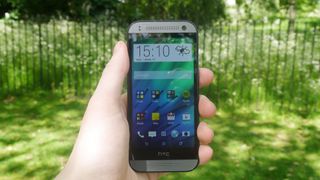
That brushed metal finish on the rear of the device feels supremely premium and the curved back means the One Mini 2 nestles nicely into the palm while the condensed size makes it a lot easier to hold on to.
Interestingly the One Mini 2 is actually thicker than both the One M8 (9.4mm) and the One Mini (9.3mm) coming in at a chunky 10.6mm - although the rounded corners and arched back do well to hide the fact.
Owners of the original HTC One will be puzzled to find that the One Mini 2 is actually the same height (137.4mm) thanks to the rounded finish employed in the handset's design, although it is narrower at 65mm.
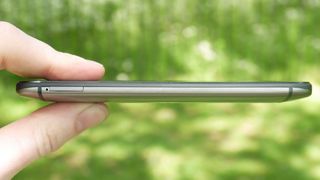
I found that the reduced width (although it is an increase over the One Mini) made it easier to reach all areas of the 4.5-inch display during one handed operation.
The build quality is close to top notch and it really does feel like a smaller One M8, although I did find the nanoSIM tray on the left of the device didn't sit completely flush with the case.
It's very slightly raised at one end, and every now and then I'd run a finger over it and it would detract from the overall experience. Not a big issue, and something which may be addressed in future production batches.
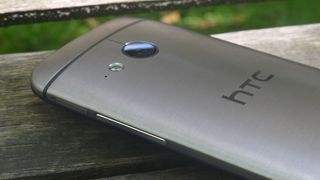
Over on the right side of the HTC One Mini 2 there's a volume rocker switch sitting just below another tray. Like the One M8, this second tray is for a microSD card, allowing you to expand on the 16GB of internal storage.
Some may find it a little bit annoying that you'll need a tool to pop the tray out and access the microSD slot, as you may not have one when out and about, but again it's a small price to pay for the superior design.
With under 12GB of the internal storage available to you, the fact the microSD slot can take cards up to 128GB in size means you won't have to worry as much about running out of space - although apps can make up a pretty meaty chunk quite quickly.
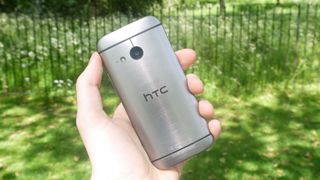
The One Mini 2 arrives in three colours; gunmetal grey, amber gold and glacial silver - the latter being the hero colour for the original HTC One and One Mini.
On my gunmetal grey review unit the volume rocker switch on the right is actually glacial silver.
Initially HTC said this was a defect that would only effect early batches of the grey handset, but the company has since confirmed that all future gunmetal grey One Mini 2s will have the silver volume key.
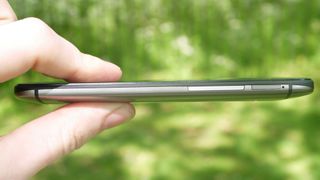
"Based on positive feedback from the announcement, the product team has decided to keep the silver volume button" a HTC spokesperson told TechRadar.
Up top, housed in the thick plastic band which has replaced the glossy plastic hiding the IR blaster on the One M8, you'll find the headphone jack and power/lock key.
The power/lock key is located on the left and that threw me as on the One M8 it's on a right.
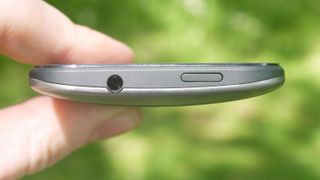
Its placement on the One Mini 2 actually makes it a little harder to hit when holding the handset in your right hand, although lefties can rejoice as it's easier in the opposite paw.
Above and below the 4.5-inch display sits the dual Boomsound speaker grills, giving you stereo sound right in your face, and the additional black bar housing the HTC logo is also present.
This does add some extra length to the handset with no external benefit, but I suspect it has something to do with fitting in all the components under the hood - as is the case with the full size One M8.
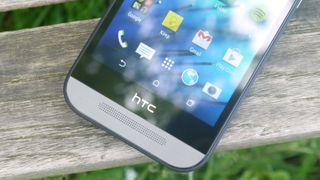
The issue some had with the One M8 was the fact you couldn't get in under the metal body and access the battery.
That same issue persists with the HTC One Mini 2, with battery accessibility sacrificed for design.
In my opinion that's not a problem as the premium finish on the One Mini 2 is stunning and well worth this minor compromise, but for the power users out there it could well be a deal breaker.
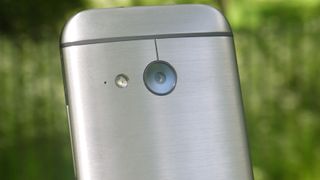
When it comes to HTC One Mini 2 price the Taiwanese firm has confirmed that it will come in £360-£370 (around AU$650) SIM-free.
On a two year contract in the UK you'll be able to pick it up for free from £21 per month.
That puts the One Mini 2 up against the likes of the Nokia Lumia 1020, iPhone 5C and the HTC One from last year, while undercutting the similarly sized Sony Xperia Z1 Compact and iPhone 5S.
When it comes down to design the HTC One Mini 2 easily trumps the iPhone 5C and it's arguably better than the Z1 Compact and 5S as well, although it doesn't sport the dust or water resistant features of the Sony.

TechRadar's former Global Managing Editor, John has been a technology journalist for more than a decade, and over the years has built up a vast knowledge of the tech industry. He’s interviewed CEOs from some of the world’s biggest tech firms, visited their HQs, and appeared on live TV and radio, including Sky News, BBC News, BBC World News, Al Jazeera, LBC, and BBC Radio 4.
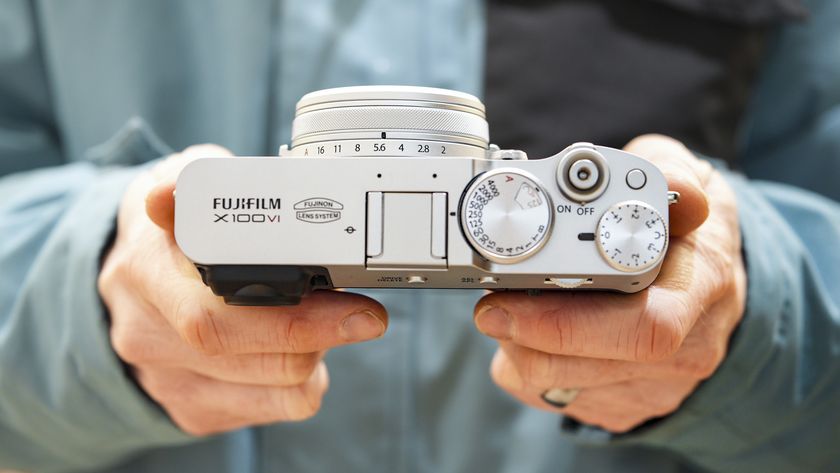
I review all the best camera phones, but I think Samsung and Apple should just copy the Fujifilm X100VI already

I tried Microsoft Copilot's iOS app, and here are 3 reasons why you should too
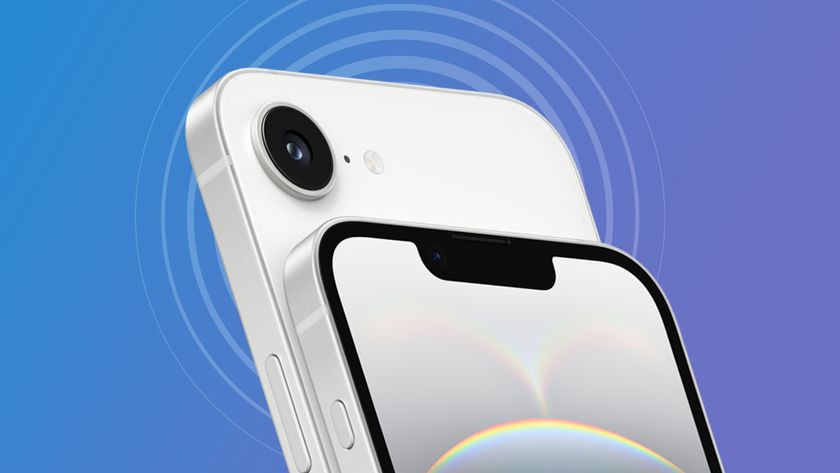
SpaceX and Apple reported spat could spell bad news for Starlink and your iPhone’s satellite communication features
